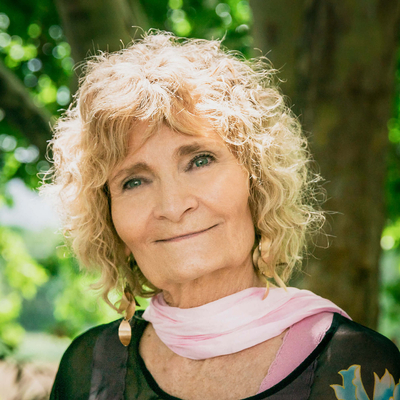In order to heal, we do need to provide the inner environment for the ministry of the Threefold Spirit of God and the other living spiritual forces to work with us. Ideally the inner environment is reinforced by an outer environment that nourishes developing it. Jesus often provided a wholistic opportunity for healing and inner growth for those he personally encountered. He encouraged an appropriate lifestyle that would enhance a deeper, more lasting healing and continued ascension of soul.
For example, in a previous vignette on the topic of healing, I spoke of the two prostitutes Jesus met and uplifted, first appealing to their minds and hearts (their inner environments), and then practically uplifting their material living circumstances by enabling them to change their outer environment. He provided the logistics for these two receptive women to change their outer conditions. After ministering to these women on the street, he did not just go on and say, “Well, I will see you. Good luck!” and leave. He empowered them to move into much better life circumstances.
Most of us are human products of an industrialized and high-tech society that has mechanized most of our outward existence as well as impacted how we view reality in general. Most decisions in this dominant culture are based on the profit motive, and there is very little soul or heart or spirit in any of it. It is a fast outer environment that sets the stage for us also rushing around in our minds, not taking much time to slow down to contemplate and think more deeply, let alone hear the voice of God’s Spirit within us.
 Our lives are full of “the tyranny of the urgent,” almost constantly aware of the time and in some manner trying “to beat the clock.” For example, we find ourselves rushing to beat the “rush hour” of traffic or trapped in traffic jams of that so-called rush hour. We often get impatient with the person in front of us who may not be driving as fast as we would like them to, and so on. The increasing problem of road rage is an outward manifestation of the rage and frustration that is happening to us on the inside.
Our lives are full of “the tyranny of the urgent,” almost constantly aware of the time and in some manner trying “to beat the clock.” For example, we find ourselves rushing to beat the “rush hour” of traffic or trapped in traffic jams of that so-called rush hour. We often get impatient with the person in front of us who may not be driving as fast as we would like them to, and so on. The increasing problem of road rage is an outward manifestation of the rage and frustration that is happening to us on the inside.
We also rush around inside our heads, finding it almost impossible to slow down in our minds to rest and be still. In fact, for some it is actually uncomfortable to slow down outwardly and inwardly, to rest body and mind, because the habit of fast living has become addictive. Many wouldn’t know how to exist without adrenalin running through them, and many are addicted to the various substances that keep their body systems and brain “hopped up” in order to move even more quickly through their days. As a result, to “become still” in order to contemplate and reflect upon what is happening in their lives is unthinkable for many persons, and so they continue running the treadmill of fast, thoughtless living that brings mental anxiety, emotional anguish, and physical diseases.
The URANTIA Book informs us that Jesus never appeared to be in a hurry, and yet his days were highly productive and full of enriching encounters with other people. In other words, he was a highly efficient individual, accomplishing the goals he had set. That was because Jesus lived fully in the moment, and he was in God’s will in each moment. You do not have to be rushing when you are in God’s will in the moment, but our dominant culture does not provide a safe place for us to slow down and develop an inner life; we have to create those places and opportunities for quiet and spirit rest.
The URANTIA Book emphasizes the importance of developing the inner life, and how if a civilization does not encourage that and provide an impetus, a catalyst for the youth of the culture to develop their inner life, that civilization will eventually crumble and fail. Is this a possibility for the existing planetary dominant culture that we live in?
A favorite author from my childhood, whose writings continue to enrich my life today, is Madeline L’Engle. In The Crosswicks Journal, A Circle of Quiet, she says:
A self is not something static, tied up in a pretty parcel and handed to the child finished and complete. A self is always becoming. Being does mean becoming, but we run so fast, that it is only when we seem to stop, as sitting on the rock at the brook, that we are aware of our own “isness” of being. But certainly this is not static, for this awareness of being is always a way of moving from the selfish self, the self-image, and towards the real. Who am I then? Who are you?”
In order for us to discover who we really are within our God-given personality circuitry, we do have to have an inner life. We have to sit in that circle of quiet. If we do not have stillness and are running around busy all the time—outwardly in our lifestyles as well as inwardly in our minds—we will end up in static spirituality, not progressing in our character and soul development.
From a spiritized perspective of whether something is of eternal value, all too often the hustle and bustle of life, the so-called “activity” is basically meaningless and give us head- and heartaches rather than clarity of higher purpose, inner peace, and true healing.
Excerpted from Teachings on Healing From a Spiritual Perspective by Van of Urantia and Niánn Emerson Chase
Meditative Warrior Image by Xiaman


